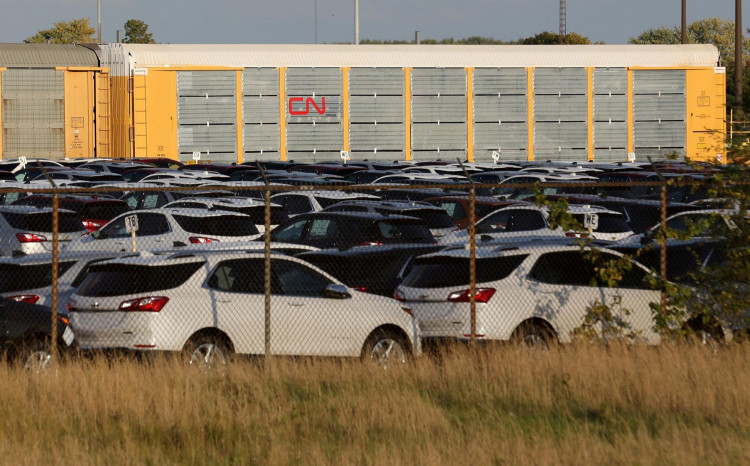The automotive industry is changing, and while at first people assumed the changes might take decades to even show up, things are happening faster than people imagined. It is not long back when the most a car would have would be a CD player and that would be considered cutting-edge technology.
But today, there is not a single car that does not come with smart connectivity, a computer inside, and every feature that your phone or computer has, albeit in very basic and rudimentary form. Large screens on the dashboard, better assistance in driving, and more powerful computers are not the only advancement in the automotive industry.
The world is rapidly moving towards an autonomous vehicle world. Every major car company is working (very successfully) at making a fully autonomous vehicle that can drive itself just like a human would drive. How this will impact the world, no one can say.
Whether it would be a welcome change or something that would make driving just a chore is up for debate. But where we would see a change is the auto insurance industry. Let's take a look at how the rise in autonomous vehicles would impact the car insurance industry, and most certainly, you, the average consumer.
Integrated Insurance
As cars will start becoming autonomous, the entire responsibility of the accident will have to be placed on someone right? Yes, autonomous vehicles are very great at preventing accidents and in a world where all the cars are autonomous road accidents would be rare.
But that world is far away and accidents are still possible even if there are a majority of autonomous cars. We have seen before that car manufacturers take direct responsibility for any accident that may happen while the car is being driven in autonomous mode.
So perhaps when you go to buy an autonomous car, you might have to pay a little extra than usual because the car manufacturer has to factor in the extra cost of an insurance claim in an accident. With the obvious fact that autonomous cars will be already expensive, this added cost of insurance would increase it even more.
Decreased Cost of Liability Insurance
Liability coverage is mandatory in almost every state and will be so in the coming years. You cannot claim your liability coverage. Rather, you need to claim on someone else's liability policy if the car accident was their fault.
Since this policy assures that the victim of the accident gets the monetary aid needed for medical treatments and car repairs, liability coverage is here to stay. But what if the cars in the future completely bar the drivers from driving? Would you still need to buy liability coverage?
Yes, the government would still require drivers to buy liability coverage since there must be some degree of control under the driver's command. But the price of liability coverage would not be as high as it is today. You would be able to get liability coverage with a great coverage limit of just around $300-$500.
How can we say so? This is because of the frequency of road accidents. There are millions of car accidents in the US every year. This high risk is one of the reasons why liability insurance is so expensive. But what happens when there are say five or ten thousand accidents every year?
Five thousand car accidents every year in the world of autonomous cars are still overstating, but the reduced frequency and risk of accidents would result in lowering the price of liability insurance. Just like you pay only a few hundred dollars for comprehensive coverage, the same would happen for liability coverage in the future.
Collision Coverage Cost Would Increase Initially
Collision coverage is the insurance policy that covers the cost of your car's repairs, irrespective of whose fault the accident was. But with the coming of autonomous cars, the cost of collision coverage would skyrocket, at least in the initial phases. How? Let us explain.
The autonomous car industry is still developing and growing. Car manufacturers are coming up with different technologies, putting billions of dollars into research to make the next generation of autonomous vehicles. This is also making these cars expensive.
Compare the price of a Honda Civic and the latest Tesla. These autonomous and semi-autonomous cars use very expensive computers, pieces of machinery, and parts. So not only is it expensive to buy these advanced cars, but it is also very expensive to repair them.
So initially when the rise of autonomous cars will increase and the number of these cars will rise on the roads, the cost of collision coverage will also increase. These cars will not be completely autonomous and as long as a human is driving a car, accidents will happen.
Since repairing these cars will be an expensive affair, insurance companies will increase the price of collision coverage for semi-autonomous/autonomous cars. Perhaps in the distant future when cars are completely autonomous the price of collision coverage might come down.
But collision coverage is here to stay and will always remain here because people would want to protect their investment and avoid getting expensive bills for car repairs.
Conclusion
The automotive industry is changing and slowly the auto insurance market is experiencing this change. While the way we interact with our cars and how we drive it is changing rapidly, the need for auto insurance policies remains the same.
The cost and coverage of auto insurance policies will change. Some will be good for the consumers, and some would be a bit expensive, but what we know for sure is that car insurance policies are here to stay as long as there are cars. Check out here to find the best rates for auto insurance policies.
Meta
In a world of autonomous cars, what would happen to the auto insurance industry? Find out what this change would mean for the average driver.






